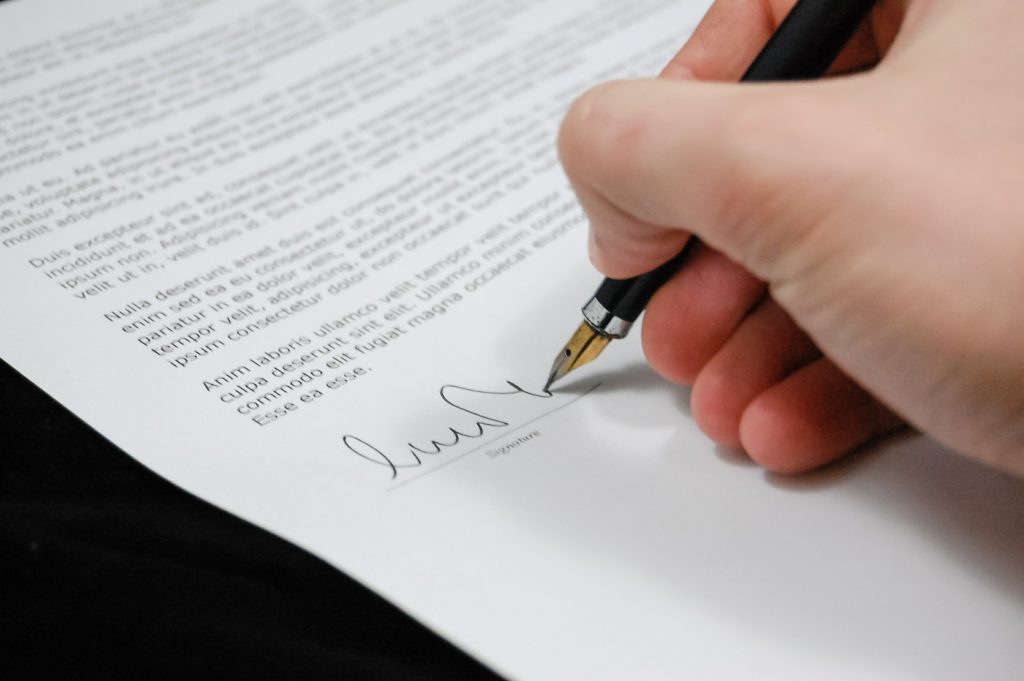Closing is the final process of buying a home, and in many ways it’s the most exciting. Soon, you’ll be able to put the whole buying process behind you, and enjoy life in your new home. But, it’s not as simple as taking the keys and waving goodbye to your Realtor. Here are the answers to some frequently asked questions about the closing process.
Do you have other questions about home buying? Check out my post on 5 contingencies all homebuyers should know.

What is closing?
Closing is the official transfer of property from the seller to the buyer. It is the final step of buying a property.
What happens during closing?
First, you will usually go to a title or settlement office but in some states (such as WV) only attorneys can conduct closings. Any outstanding mortgages, liens, unpaid taxes, and judgments will have been settled at this point. As long as there are no outstanding debts to pay, the signing process begins. Here are some of the papers you may sign during closing:
- The mortgage – this is the agreement you have with the bank to pay for the property, assuming you aren’t paying in cash.
- Truth-in-Lending Act (TILA) statement – the TILA details your mortgage, interest rates, and payments due over time, again, unless you are paying cash.
- Title deed – this document transfers ownership from the seller to the buyer.
- ALTA Settlement Statement – also known as a closing statement, this document lists all of the charges and credits to both the buyer and the seller.
Depending on your situation there will be additional papers to sign, like an abstract of title, promissory note, or affidavits.
Having trouble with getting the down payment together? Read my post and consider if private mortgage insurance is right for you.
How long does closing take?
Be prepared to sit a while, as closing can take several hours or more, especially if unexpected issues arise. Be patient, and don’t be afraid to ask questions. This is a major commitment, and you want to be able to understand everything you’re signing.
What do I need to bring to closing?
You don’t need to bring too much, but be prepared with the following items:
- I.D card – license, passport, or other government issued I.D
- Closing disclosure – this is required to be sent to you by your lender. Bring the one you received to compare to the one that will be presented at the closing.
- A way to pay – you will be paying closing costs at this time, so bring a cashier’s check or a wire transfer receipt.
Ask your lender, bank, and agent if you need to bring any additional documents. It may also be helpful to write down any questions you have and bring them to the meeting.
How can I prepare?
There are a lot of things you have to do long before closing day, but let’s focus on what you can do up to a week before closing day arrives.
- Do a walkthrough – most of the time buyers will be allowed a final walkthrough of the property to make sure that it is still in the same condition as it was when the purchase agreement was signed.
- Ensure repairs are done – any repairs that the seller agreed to do before closing should be completed by now.
- Review all contracts and documents – make sure you have all of the required papers, and read through them.
- Homeowners insurance – confirm that it is in place and ready to take effect.
- Take over any utilities from the seller – this can be done with a series of simple phone calls.
- Look up directions to where the closing will be – if possible, it’s a good idea to take a test drive there before the day arrives, so you can anticipate traffic and eliminate the risk of running late.
- Relax – you’re about to change your life in a significant way, and while it’s a stressful process, it’s also quite exciting. Make sure you take care of yourself and try to avoid stressing too much.

When in doubt, your agent is there to help. Are you interested in buying or selling a home, or do you have questions about the process? I’m a licensed real estate agent in DC, MD, PA, VA, and WV, and I’d love to answer any questions you may have. Feel free to contact me at sian@sianpugh.com.


Leave a Reply